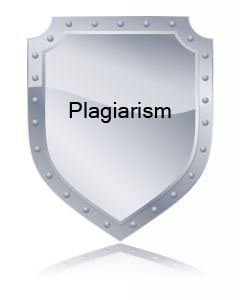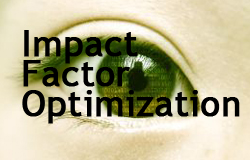 The latest case of breaking misconduct news comes out of the University of Connecticut. Dr. Dipak Das is the director of the UConn Health Center’s Cardiovascular Researcher Center, and is best known for his groundbreaking research on resveratrol, the chemical agent found in red wine that has been touted to benefit health in a number of ways.
The latest case of breaking misconduct news comes out of the University of Connecticut. Dr. Dipak Das is the director of the UConn Health Center’s Cardiovascular Researcher Center, and is best known for his groundbreaking research on resveratrol, the chemical agent found in red wine that has been touted to benefit health in a number of ways.
Menu
-
Solutions
-
Our Solutions
-
AcademicSurface potential plagiarism prior to publication with iThenticate’s expansive content database.
-
AdmissionsScreen personal essays for potential plagiarism and help ensure the highest level of integrity even before matriculation.
-
GovernmentEnsure the originality of public-facing content, from legal documents to grant applications, and reporting.
-
MedicalPrevent invalid findings dissemination, grant misconduct, and improper medical practices.
-
PublishingProtect your journal’s reputation by publishing only the highest quality articles.
-
-
Resources
-
Our Resources
-
FAQFind the answers to the commonly asked questions about how iThenticate works.
-
Content DatabaseComprehensive coverage you can trust across the internet, scholarly articles, and industry papers.
-
GuidanceSearch our comprehensive site for the launch, integration and usage information.
-
-
Pricing
-
Login
-
Buy Credits
 The relationship between authors and publishers has been rapidly evolving along with the digital age. Many authors have taken to publishing their own books through large online e-book sellers like Amazon and distributing on platforms like the Kindle and iPad. Not only do services like these provide streamlined publishing and distribution pathways, but they also offer authors a larger cut of profits than they would get with a traditional publisher.
The relationship between authors and publishers has been rapidly evolving along with the digital age. Many authors have taken to publishing their own books through large online e-book sellers like Amazon and distributing on platforms like the Kindle and iPad. Not only do services like these provide streamlined publishing and distribution pathways, but they also offer authors a larger cut of profits than they would get with a traditional publisher. Techdirt recently published a very interesting article that examines the current
Techdirt recently published a very interesting article that examines the current  Lately, plagiarism has become a hot topic in the news. Over the past several years high profile cases have come to the forefront of major news outlets and given the issue of plagiarism a renewed sense of urgency. Each of these plagiarism cases has its own unique ‘plot’; including a cast of characters involved, a timeline of events, and a final result or judgement for the perpetrators. In a way, the public has become attracted to these cases for much the same reasons that they are drawn to reality television: the drama.
Lately, plagiarism has become a hot topic in the news. Over the past several years high profile cases have come to the forefront of major news outlets and given the issue of plagiarism a renewed sense of urgency. Each of these plagiarism cases has its own unique ‘plot’; including a cast of characters involved, a timeline of events, and a final result or judgement for the perpetrators. In a way, the public has become attracted to these cases for much the same reasons that they are drawn to reality television: the drama.
 Impact factor is a big deal for scientific journals. The impact factor score is based on the average number of citations a journal receives – an approximate measure of how important and relevant a journal is to the scientific community. For a journal (along with its editors and authors) impact factor can determine distribution deals, grant funding, and the overall success of a publication. Although the impact factor score is mathematically calculated for each journal, in the end its foundation is laid by one organization:
Impact factor is a big deal for scientific journals. The impact factor score is based on the average number of citations a journal receives – an approximate measure of how important and relevant a journal is to the scientific community. For a journal (along with its editors and authors) impact factor can determine distribution deals, grant funding, and the overall success of a publication. Although the impact factor score is mathematically calculated for each journal, in the end its foundation is laid by one organization:  Science Reporting and journalism have changed quite a bit over the last several decades. In the past, there were only a few central news sources that people got their scientific information from. For example, viewers would tune into the
Science Reporting and journalism have changed quite a bit over the last several decades. In the past, there were only a few central news sources that people got their scientific information from. For example, viewers would tune into the  One of the most valuable tools that bloggers and digital content publications use as a source for edits is their user community. When a writer or organization either doesn’t have the resources for a standard editor or can’t cover the sheer volume of published works, they can turn to their readers to point out grammatical errors, perform fact checking, and even scan content for cases of plagiarism.
One of the most valuable tools that bloggers and digital content publications use as a source for edits is their user community. When a writer or organization either doesn’t have the resources for a standard editor or can’t cover the sheer volume of published works, they can turn to their readers to point out grammatical errors, perform fact checking, and even scan content for cases of plagiarism. Joseph Esposito from the ‘Scholarly Kitchen’ wrote
Joseph Esposito from the ‘Scholarly Kitchen’ wrote  A quick Google search for ‘plagiarizing quotes’ or ‘plagiarism of quotes’ yields a plethora of results, however, most of the results are related to quotes about plagiarism. There is nearly no information out there on plagiarizing quotations; instances where individuals have plagiarized other authors through the use of their quotations.
A quick Google search for ‘plagiarizing quotes’ or ‘plagiarism of quotes’ yields a plethora of results, however, most of the results are related to quotes about plagiarism. There is nearly no information out there on plagiarizing quotations; instances where individuals have plagiarized other authors through the use of their quotations.